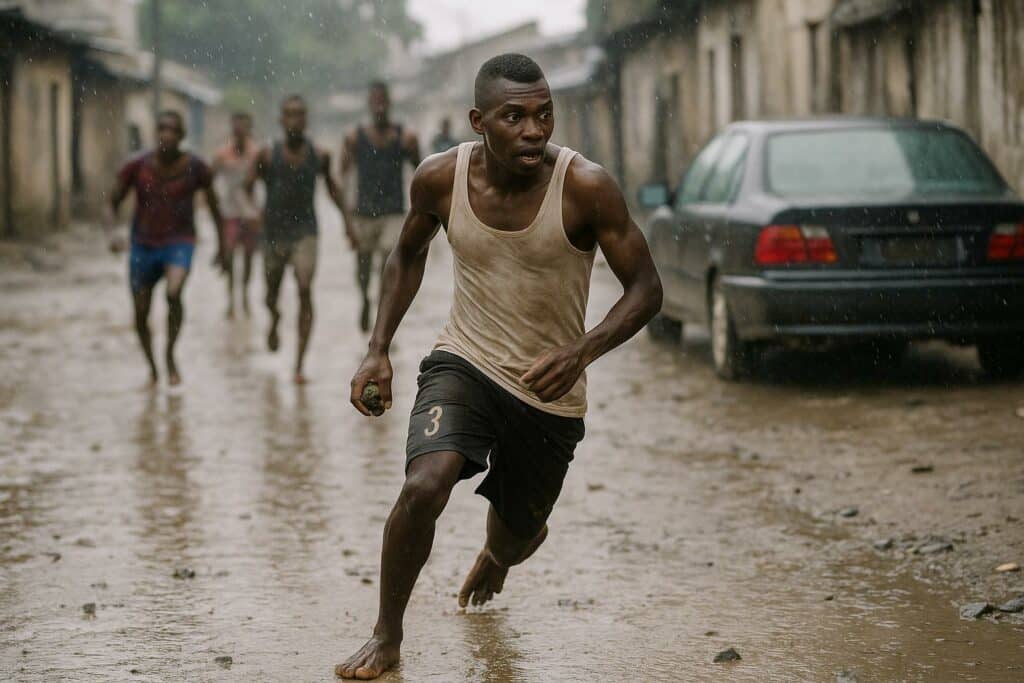Anatomy of the Kulunas Phenomenon
Well before the clang of military boots echoed last weekend in Ouenzé and Talangaï, the name “Kulunas” had become shorthand for a mode of urban violence that feeds on economic fragility and peer-group bravado. The expression, imported from Kinshasa in the early 2010s, designates loosely organised youth gangs armed with machetes and metal bars who specialise in lightning robberies at bus stops and markets. According to the latest situational report from the Congolese National Police, more than one-third of the assault cases wp-signup.phped in Brazzaville during the second quarter of 2024 bore the signature methods of these so-called “bébés noirs” (Police nationale, quarterly bulletin, July 2024).
Inside the Presidential Security Sweep
At dawn on Saturday, mixed detachments of the Direction générale de la sécurité présidentielle and the Garde républicaine deployed simultaneously on both banks of the Tsiémé River. Officers moved house-to-house, dislodging suspected gang leaders and securing makeshift armouries hidden in abandoned courtyards. Colonel Prosper Ngakala, speaking for the joint command, underscored that the mandate came directly from the Head of State to “reassert the primacy of public order without compromise, yet without excess” (Radio Congo interview, 7 September). Initial figures released Sunday mention 143 arrests and the seizure of 87 bladed weapons.
The operation’s choreography has been carefully calibrated. Units advance under aerial cover provided by the Air Force’s light helicopters, while judicial police officers accompany each patrol to document evidence on site. By sunset, checkpoints controlled the main exits to the Pool and Plateaux departments, anticipating the centrifugal flight of gang members toward the hinterland.
Citizens as Force Multipliers
The authorities have explicitly woven local participation into the security fabric. Neighbourhood committees, revived in July through a municipal decree, feed real-time information to a toll-free hotline set up by the Ministry of Interior. “We report suspicious movements through WhatsApp voice notes; the military answers within minutes,” explains Clarisse Massengo, president of the Mikalou vigilance group, who applauds what she calls “a covenant of trust between state and street”.
Public opinion, gauged through a flash poll by the Centre d’études et de recherche sur l’opinion, shows 78 % support for the sweep, provided it lasts beyond the media spotlight. Residents of Diata recall earlier operations in 2017 that faded after a few weeks, allowing gangs to regroup. Authorities insist that a second, stabilisation phase—focused on continued foot patrols, street lighting upgrades and youth outreach—will follow the initial crackdown.
Legal Framework and Human Rights Safeguards
Mindful of regional jurisprudence, the Ministry of Justice has circulated guidelines reminding officers that arrests must rest on flagrante delicto or judicial warrants, in line with the Code de procédure pénale. Magistrate Élise Makosso, sitting on the Brazzaville Court of Appeal, stresses that “state authority derives its legitimacy from strict compliance with the law; otherwise today’s solution becomes tomorrow’s grievance.” The National Commission for Human Rights has embedded observers within detention centres to document custody conditions, a measure welcomed by international partners, notably the UN Office for Central Africa, which cited it as “good practice” in its August situation brief.
Economic Ripples of Urban Insecurity
Beyond the immediate threat to physical safety, kuluna activity has raised the transaction costs of doing business in the capital. The Brazzaville Chamber of Commerce estimates that informal security expenses—private guards, reinforced shutters, night transport allowances—inflate operating budgets of small retailers by up to 12 %. The Ministry of Economy argues that restoring normalcy could unlock much-needed liquidity for local entrepreneurs and improve the city’s attractiveness under the ongoing Invest in Congo strategy. As economist Jean-Benoît Ndinga notes, “security is not a luxury line; it is a pre-condition for mobilising domestic savings toward productive ventures.”
A Regional Security Signal
While the current sweep is territorially confined, its strategic reach extends to Congo’s neighbours. The free flow of small arms and transient gangs in the CEMAC corridor makes national boundaries porous. By demonstrating operational readiness in Brazzaville, the government sends a message that it is willing to assume a leadership role in forthcoming regional security discussions. Cameroonian security analyst Béatrice Koum states that “concerted action against urban gangs will become a CEMAC benchmark, and Brazzaville has taken the first step.”
À retenir, the campaign aims at more than arrests; it seeks to reinstall everyday confidence in public space, cement state legitimacy and create a climate propitious to economic revival. Success, authorities concede, hinges on disciplined force, sustained civic cooperation and the judiciary’s ability to process cases swiftly. In the words of Colonel Ngakala, “a secure street is the first kilometre of national development.”

